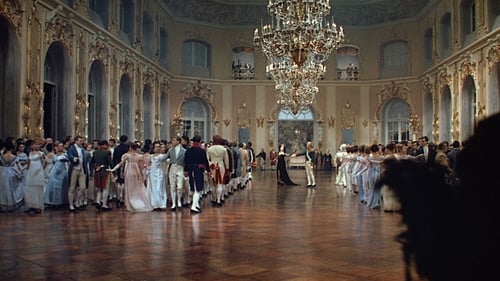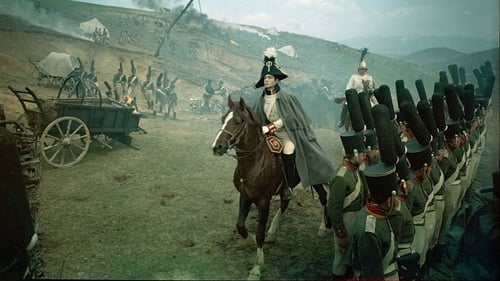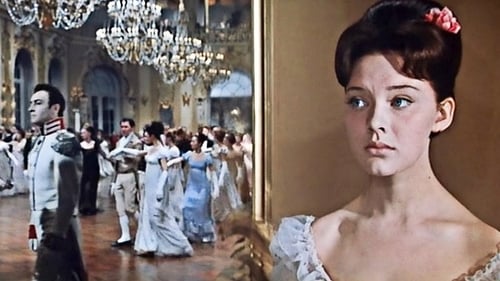
Screenplay
As Moscow is set ablaze by the retreating Russians, the Rostovs flee their estate, taking wounded soldiers with them, and unbeknownst to them, also Andrei. Pierre, dressed as a peasant, tries to assassinate Napoleon but is taken prisoner. As the French are forced to retreat, he is marched for months with the Grande Armée, until being freed by a raiding party. The French are defeated by Kutuzov in the Battle of Krasnoi. Andrei is recognized and is brought to his estate. He forgives Natasha on his deathbed. She reunites with Pierre and they marry as Moscow is being rebuilt.

Screenplay
In 1812, Napoleon's Army invades Russia. Kutuzov asks Bolkonsky to join him as a staff officer, yet the prince requests a command in the field. Pierre sets out to watch the upcoming confrontation between the armies. During the Battle of Borodino, he volunteers to assist in an artillery battery. Bolkonsky's unit waits in the reserve, but he is hit by a shell. Both Anatol and Bolkosnky suffer severe wounds. The French Army is victorious and advances on Moscow.

Screenplay
In the end of 1809, Natasha attends her first ball. Andrei falls in love with her and intends to marry her, but her father demands they wait. The prince travels abroad, and Natasha desperately longs for him. But she then meets Anatol Kuragin and forgets of Andrei. At the last minute, she regrets and abandons her plans to elope with Anatol. Bolkonsky hears of this and declares their betrothal is over. Pierre, trying to calm her down, suddenly announces he loves her.

Screenplay
A seven-hour epic adaptation of the novel by Leo Tolstoy. The love story of young Countess Natasha Rostova and Count Pierre Bezukhov is interwoven with the Great Patriotic War of 1812 against Napoleon's invading army.

Screenplay
The first film of a four-part adaptation of Leo Tolstoy’s 1869 novel. In St. Petersburg of 1805, Pierre Bezukhov, the illegitimate son of a rich nobleman, is introduced to high society. His friend, Prince Andrei Bolkonsky, joins the Imperial Russian Army as aide-de-camp of General Mikhail Kutuzov in the War of the Third Coalition against Napoleon.

Writer
A satirical comedy with elements of metaphysical horror about religion in rural 1960s Soviet Russia. Notable for using first-person pseudo-documentary "found footage" technique framing the movie as the creation of the protagonist, who is returns to his home village from the city to discover that a local drunk has formed a doomsday cult.

Writer
This film consists of three parts. The first dramatizes the life of the founder of Soviet astronautics, Konstantin Tsiolkovsky; the second describes the development of rocket technology; and the third visualizes the future with enactments of the first manned spaceflight, spacewalk, space station construction and humans on the moon.






